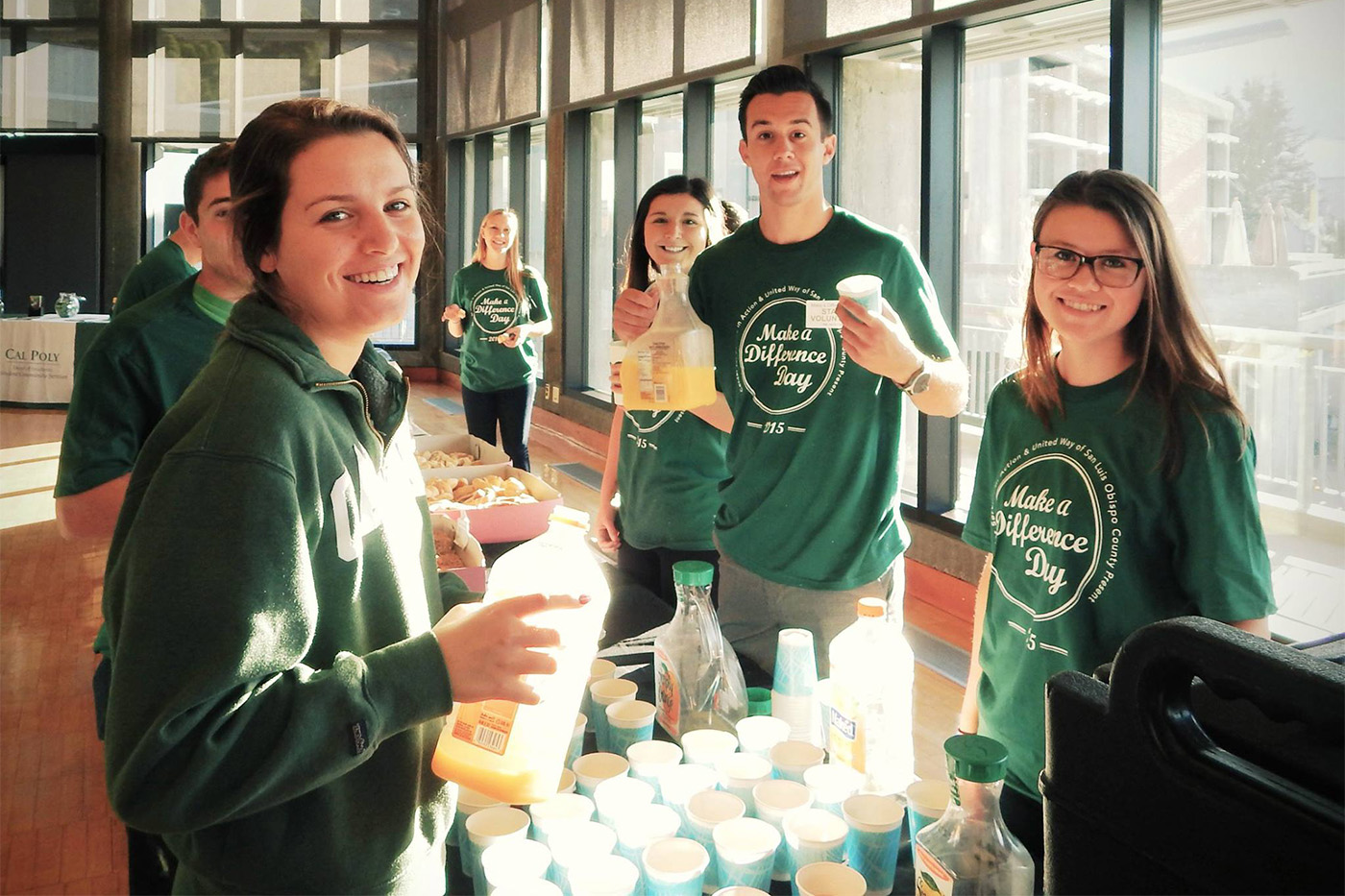After 17 years, the annual Cal Poly Center for Service in Action Change the Status Quo conference finally has a theme: redefining boldness.
This year’s conference will take place on Feb. 22 and 23 and will incorporate workshops, guest speakers and sessions to address issues like social justice, white privilege and white allyship to inspire social change.
The ‘Redefining Boldness’ theme aims to inspire students to challenge social norms and create lasting change, according to the Cal Poly Center for Service in Action.
“With the climate on campus right now there is a lot of talk around allyship and what it means to be an ally to people in underrepresented groups,” Center for Service in Action Coordinator Megan Rivoire said. “We think that it requires boldness — you have to actively want to be an ally, you have to have really tough conversations, you have to call people out, you have to call people in. We feel like now is the time to be bold on this campus and in our world, in our country.”
The conference starts on Friday with a preview night featuring the Leadership, Law Enforcement, & Social Justice Panel + Discussion. Vice President for Student Affairs Keith Humphrey, Dean of Students Kathleen McMahon, University Police Department Chief George Hughes, San Luis Obispo Police Department Chief Deanna Cantrell and student activists will sit on the panel.
“Law enforcement are obviously often seen as opposition to the social justice movement, but they are actually a really big part of it,” Rivoire said. “[We are] hearing about what their role is in protests and keeping people safe and supporting all aspects of the community.”
The main event on Saturday will feature the first annual White Privilege Symposium. The symposium is meant to provide white students with tools to understand their privilege and use it to be an ally, Rivoire said.
“Lots of people felt the pain of the incidents that happened on our campus last year and did not really know what their role was, and how they could help move the needle forward on campus for social change towards creating a community that is really inclusive,” Rivoire said.
During the symposium keynote speaker Kristin Deal, adjunct professor and interim director for the Office of Diversity and Inclusion at the University of Denver, will give a talk called But I’m not a Racist: White Emotionality and Barriers to Anti-Racist Work.
Deal said Cal Poly is not alone in turning to marginalized groups for guidance on what needs to be changed after a racist, sexist or homophobic incident.
“Racism is the responsibility of white people and a white system,” Deal said. “Sexism is a male responsibility, and it’s part of a patriarchal system. We need those folks who exist in power structures to take up their responsibility and engage proactively.”
Deal said most of her work and research focuses on anti-racist practices, identity structures and how college campuses can create inclusive learning environments.
“I would say that I am joining a conversation that has been in progress for decades before I entered it, and will continue decades beyond me,” Deal said.
Deal said a large portion of her research focuses on white emotionality, which is based in Robin D’Angelo’s concept of white fragility and is a way for white people to avoid difficult conversations regarding race.
“We have been socialized in ways that we do not have stamina around these conversations,” Deal said. “All of those tactics, all of those different things that show up in the classroom or show up outside of the classroom that continually re-center the normality of whiteness as a construct as to avoid the hard conversations about race.”
Other workshops in the symposium include Adopting a Human Rights Framework by the Cal Poly club #mustangsUNITED, as well as I Love You, Bro: Stories of Friendship in Fraternity Life, which explores masculinity and college men.
“This is the change we have been talking about,” Rivoire said. “These are the types of things we want to see on campus, so it is really nice to see when it is all coming together and we are being an inclusive campus community and we are creating space for all these conversations.”
The overall goal of the two-day conference is to provide students with the tools and connections to make change, Rivoire said.
“We want people to come learn, but also to walk away with the tools to be able to make a change and to get involved in things on campus and off that are pushing the needle forward when it comes to social justice,” Rivoire said.
Preview night for the conference is from 6 p.m. to 8 p.m. on Feb. 22 in the Julian A. Mcphee University Union and is free and open to everyone. The main conference is Feb. 23 from 8:30 a.m. to 3:30 p.m. in Chumash Auditorium. Registration for the conference is $10 for Cal Poly students and $25 for general admission. Scholarships are available through the Cal Poly Center for Service in Action for anyone who wishes to attend the event but cannot afford it.
“If you want to come to Change the Status Quo, please do not let there be any barriers,” Rivoire said. “We are committing to making sure that everyone who wants to be there can be there.”

